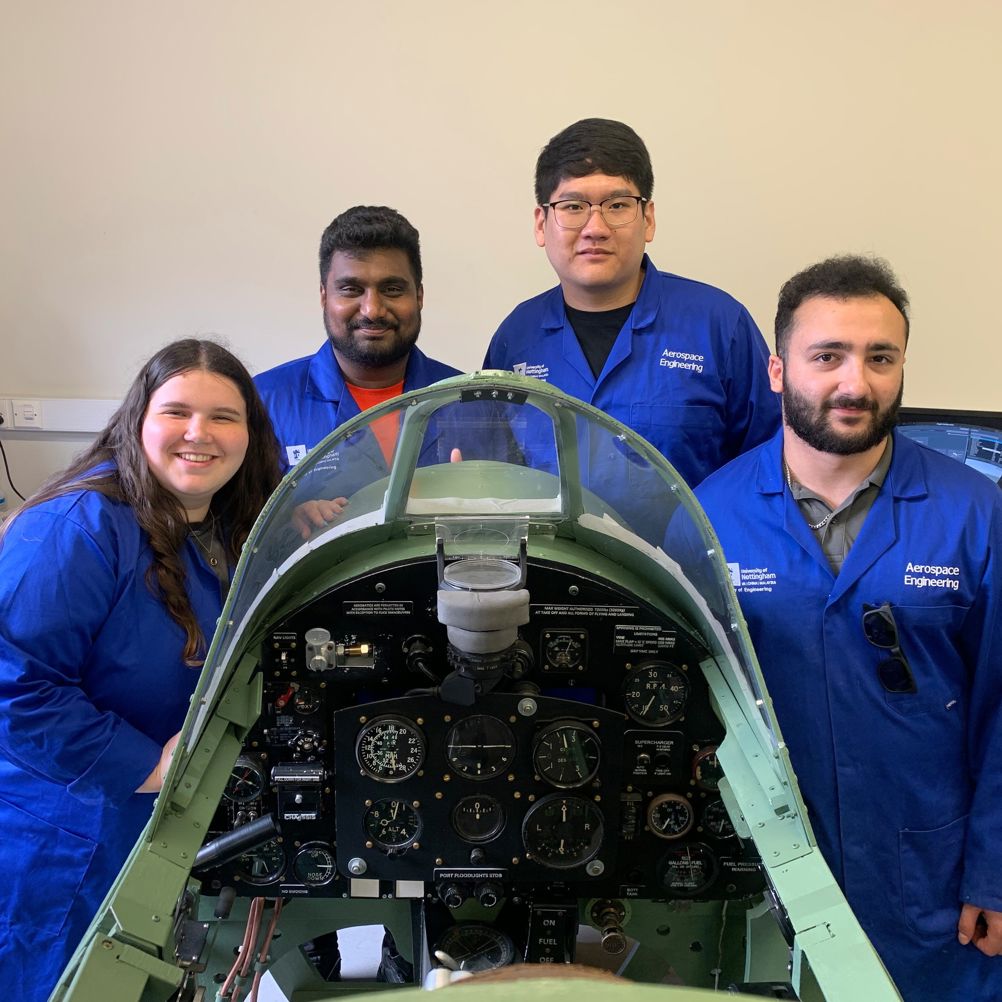Led by associate professor Dr Mark Jabbal from Nottingham’s Department of Mechanical, Materials and Manufacturing Engineering, the ‘Operation Spitfire’ project saw over 100 students and around 10 apprentice technicians contribute to the development of the Spitfire simulator.
Undergraduate aerospace engineering students voluntarily assisted on the project between 2019 and 2023 as an extracurricular activity, working in teams of four or five at a time before the finished simulator went to the Spitfire Gallery at the Potteries Museum and Art Gallery in Stoke-on-Trent – the birthplace of R.J. Mitchell CBE, aircraft designer who led the team that designed the Spitfire aircraft.
Despite delays due to the Covid-19 pandemic, students from across Nottingham’s engineering faculty were able to get involved with the construction of the simulator. This included a number of individual and group projects supervised by Dr Jabbal, as well as apprentice technicians responsible for developing specific components in the simulator.
Upon completion, Mark Discombe MBE – one of the most experienced Spitfire pilots in the UK – tested the simulator for accuracy before it left the University, and was said to be impressed by the realism of the simulator.

The simulator was officially opened in the Spitfire Gallery on 15 September, Battle of Britain Day, by Stoke-on-Trent Lord Mayor, Councillor Lyn Sharpe and Stoke-born former Fleet Air Arm’s elite test pilot, Commander Nathan Gray.
“The aim of the simulator is when the public try it, they’ll immediately get a sense of what it’s like to be in a Spitfire aircraft, because we’ve created the cockpit, the layout, the instruments, and the feel of it to be as close to a Spitfire aircraft as possible,” Dr Jabbal said in a statement.
“The gallery has a static Spitfire aircraft on display, but no one can actually sit in it. So it’s that opportunity of being in the cockpit and getting a sense of what it’s like to fly. As well as inspiring future generations, it’s given our students the opportunity to engage in an exciting project and to apply the practical skills gained from their course.”
Operation Spitfire said that they hope their simulator will be a centerpiece of local school STEM initiatives, to inspire more young people from one of the most deprived areas of the UK into careers in aviation and aerospace engineering.
More from Aerospace











Comment: Hydrogen requires a long-term mindset
I'm fairly certain there were plenty of nay sayers in the early 19th century that refused to see the benefits of railways and steam power and...